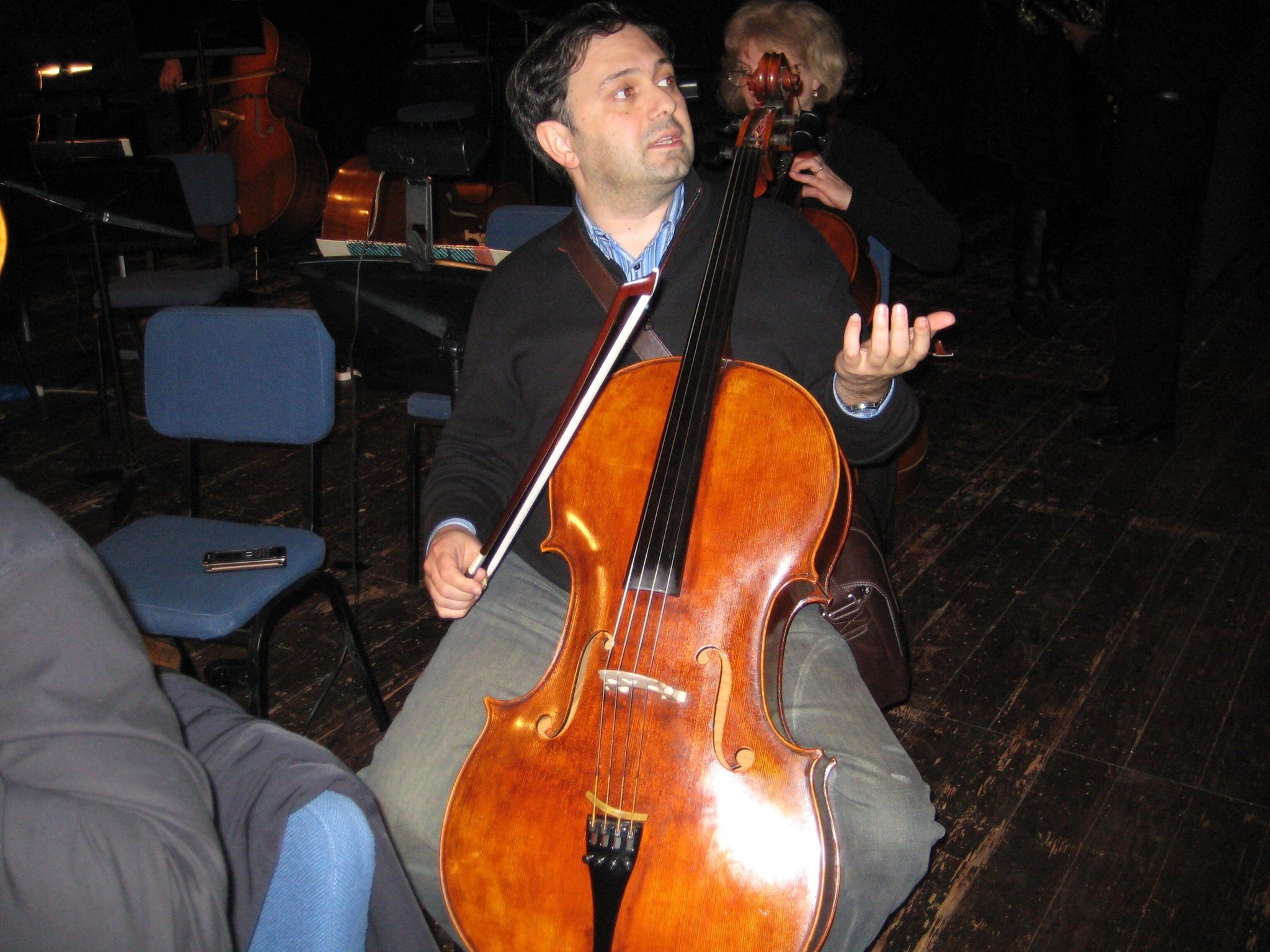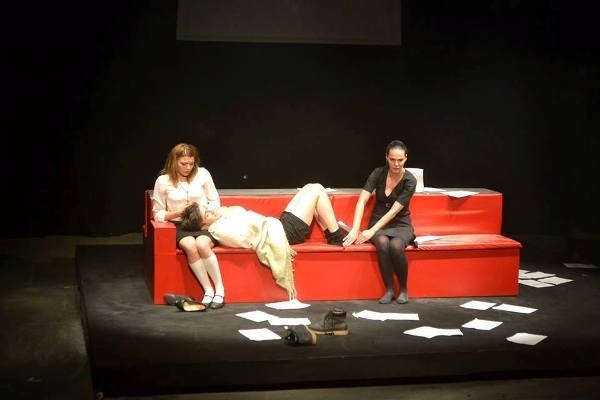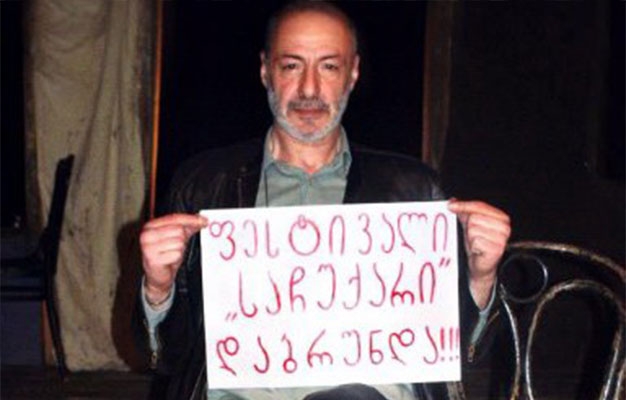The article reviews the performances by the debutant directors in recent years: excessive “ theatrics”, often inappropriate and unmotivated “director steps”, some mise-en scenes are totally incomprehensible, unintelligible rebuses are apparently typical for the young directors.
“Antigone” by Sophokles, staged in the V. Abashidze Music and Drama theatre, caused debate and divergence among critics. Precisely, with author’s comprehension, the director set forward the topic of dictatorship and its establishment, and he opposed to it Antigone’s riot against the reigning tyranny. Iodiposi’s offsprings are exterminated – all were punished for their sins, all who were related to this incident and Etheokle’s (or Polenike’s) dead body befalls upon our heads – sin of our ignorance.
W. Shakespeare’s “Hamlet”, staged in the Marjanishvili theatre by Temo Kuprava, is also an example of experimental seeking. The director offers lots of findings and a new vision. Sometimes controversial, sometimes pleasant, sometimes unacceptable. For instance, the director offers a new interpretation, different from Shakespeare’s text – the Queen-actor kills Gonzago in the Garden scene acted by the wandering actors. Hamlet is staring at Gertrude and observing her reaction. The wild-looking Queen is back to her senses by Claudius’s scream, who is ready to escape, Polonius is also shouting “light, light”…
It is very helpful for young directors’ future progress, when they are provided with the stage space at the initial step of their creative work: the Marjanishvili theatre attic, the Rustaveli theatre experimental stage, the Music and Drama theatre have become the space for bold experiments, attempts, creative search. All participants note, that most important for them has been the process, the period of the performance making. Naturally, for us, the spectators, the main thing that matters is the result, what we see on the stage. The things happening behind the scene are often beyond our interest. And if the result is decent, we may consider the experiment successful.

The forthcoming seminar for Georgian young theatre critics
25-March-2015, 10:17


Phantoms
15-December-2013, 23:24

Festival, festival…
09-November-2013, 13:51


